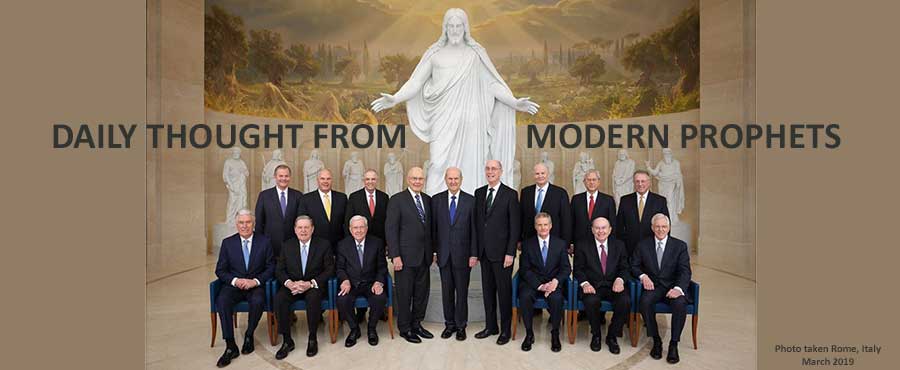"As the humble servants of the Savior, we should pray for the manifestations of the Holy Ghost to come to us in our service and to those we serve. Humble prayer to our Heavenly Father, in deep faith in Jesus Christ, is essential to qualify us for the companionship of the Holy Ghost.
"Our humility and our faith that invite spiritual gifts are increased by our reading, studying, and pondering the scriptures. We have all heard those words. Yet we may read a few lines or pages of scripture every day and hope that will be enough.
"But reading, studying, and pondering are not the same. We read words and we may get ideas. We study and we may discover patterns and connections in scripture. But when we ponder, we invite revelation by the Spirit. Pondering, to me, is the thinking and the praying I do after reading and studying in the scriptures carefully."
- Henry B. Eyring, "Serve with the Spirit," General Conference, October 2010
Click here to read or listen to the full talk
President Eyring's address to the Priesthood session in the October 2010 conference instructed on the importance of serving with the Holy Spirit. He encouraged the brethren to "do whatever is required to qualify for the Holy Ghost as our companion" in order to serve the Lord most effectively. Praying, with humility and "deep faith in Jesus Christ," is the first step to invite the Holy Spirit into our lives.
The spiritual gifts that come from prayer are "increased" as we not only read, but also study and ponder the scriptures. President Eyring helps us understand and differentiate those concepts:
Reading has limited value unless it is enhanced by the activities of studying and pondering. In the studying, we begin to "discover patterns and connections" as we read. And then pondering what we have studied, thinking and praying about the things we have read, "invite[s] revelation by the Spirit."
This is a valuable reminder. It is very easy to fall into the trap of casual reading with minimal pondering, and much reduced benefit!
(Compilation and commentary by David Kenison, Orem, Utah, 2017)

































